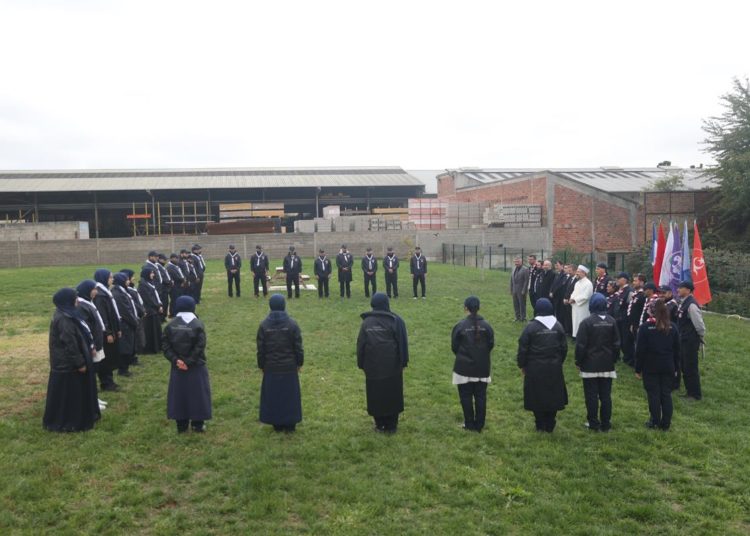Levent Kenez/Stockholm
Turkey’s highly politicized Religious Affairs Directorate (Diyanet) has been organizing various social and aid activities in Europe to improve its frayed image and reach new youth. Most recently Ali Erbaş, the head of the Diyanet, on Monday opened a scout camp in the Corbeil Essonnes district south of Paris, jointly organized by an affiliate of the Diyanet, the French branch of the Turkish-Islamic Union for Religious Affairs (DITIB), and the Turkish Scouting and Guiding Federation.
Diyanet imams working in France and French-Turkish youngsters studying theology at Turkish universities attended the scout camp, Nordic Monitor has learned. These students, who receive scholarships from the Diyanet’s International Theology Program, are expected to work as Diyanet personnel in France after graduation.
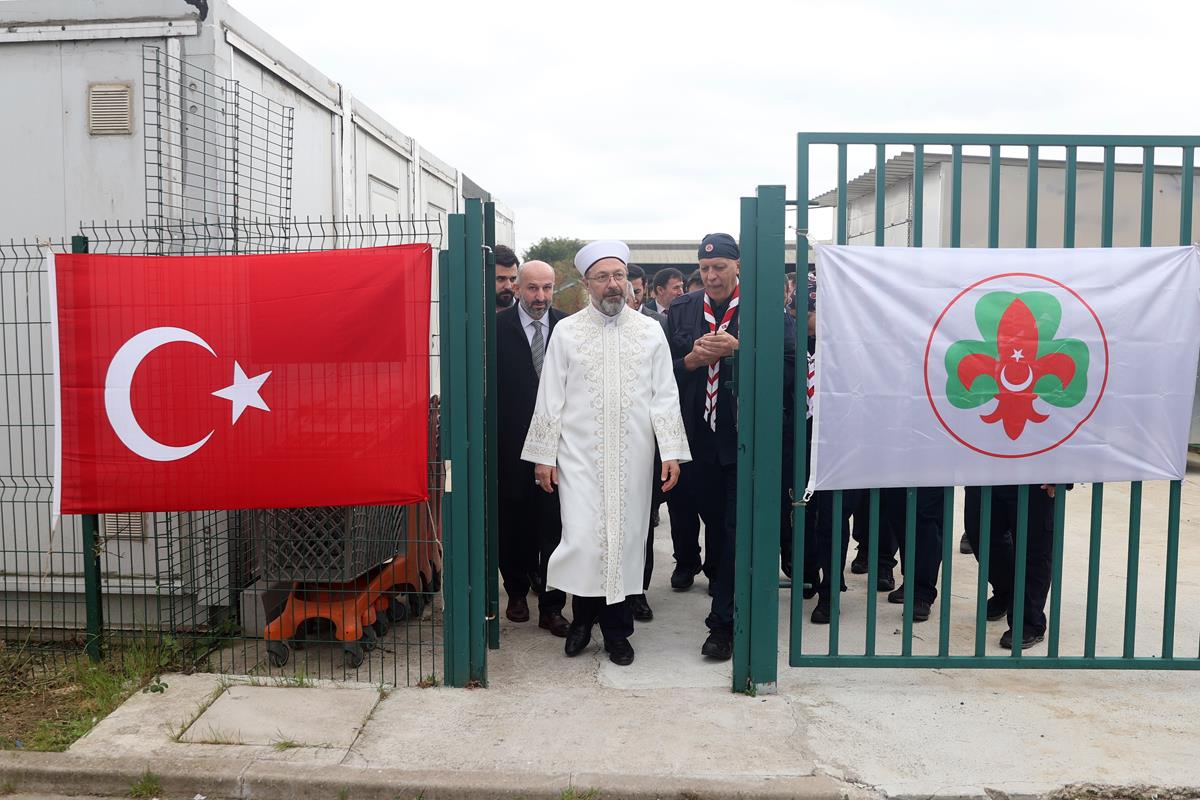
Erbaş, who said scouting is an important means of preaching about Islam to young people, thanked federation officials, adding that Turkish scouting activities have now started to serve in the spiritual field, unlike in the past.
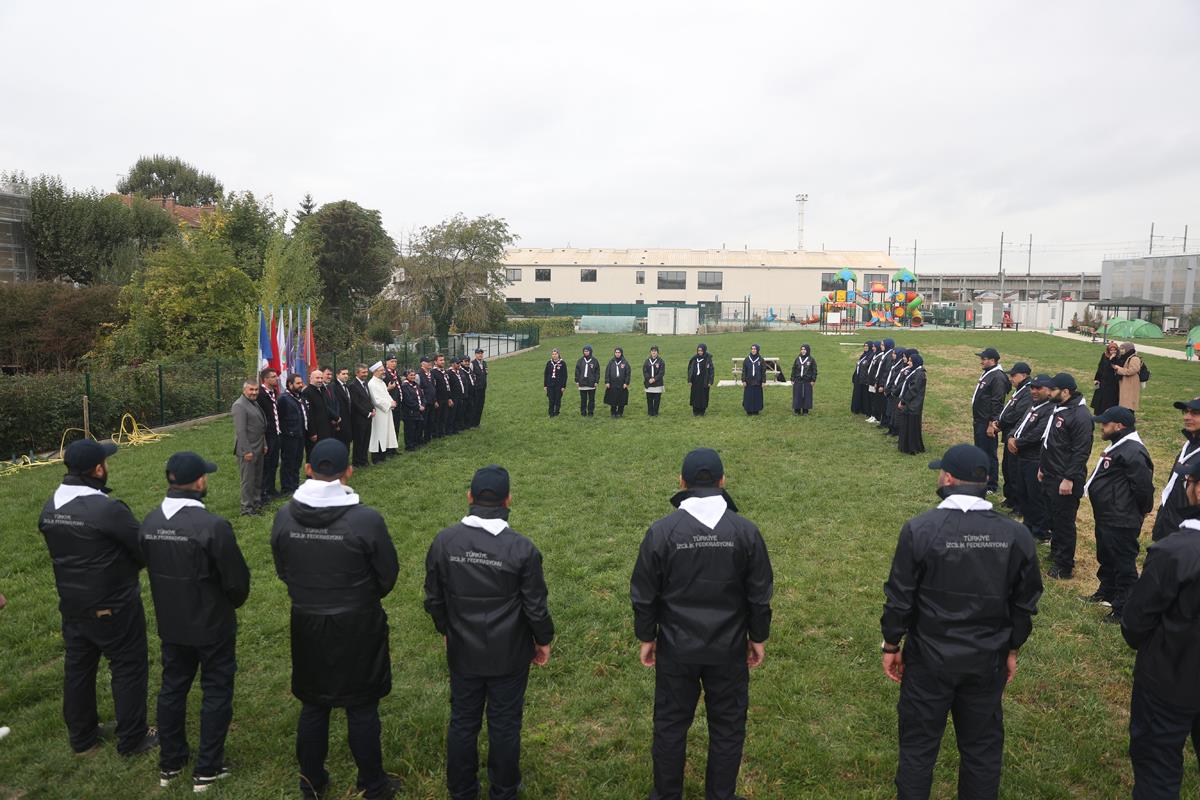
Turkish Consul General in Paris Serdar Belentepe and President of the Turkish Scouting and Guiding Federation Hasan Subaşı also attended the opening ceremony of the camp, which will host activities for seven days.
The Diyanet and the Turkish Scouting Federation signed a cooperation protocol in 2021, announcing that the young people who attended services at mosques would receive scouting training and that the leadership of imams would be improved. However, it was not stated that the protocol covered activities abroad.
The DİTİB in France runs 264 mosques across the country and is responsible for some 200 imams sent from Ankara.
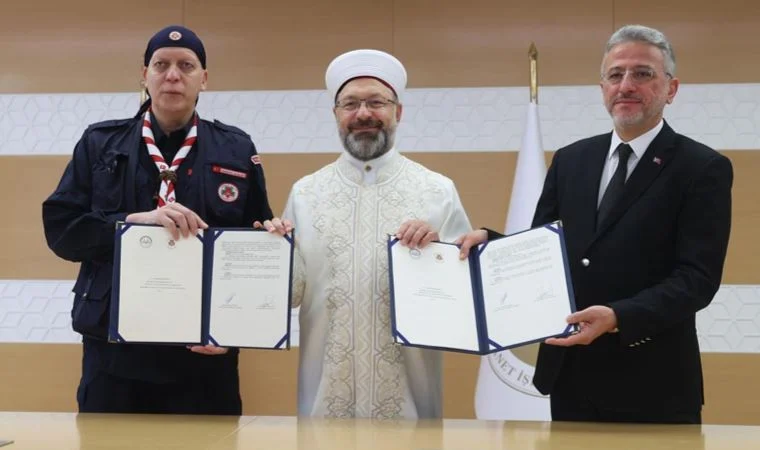
In 2018 French weekly magazine Le Point discovered through documents it obtained that there is extensive corruption in DİTİB and that the organization is busy not only with religious matters but also with spying on opponents of the Turkish government.
In a report titled “The tricks played by Erdoğan’s imams,” in reference to Turkish President Recep Tayyip Erdoğan, Le Point examined hundreds of pages of diplomatic correspondence of DİTİB officials in France as well as from the Turkish Religious Affairs Attaché’s Office in Paris and revealed how they collect huge amounts of money from Turks in France and illegally use a significant part of it for their own purposes.
In the letters the then-Religious Affairs attaché also notified Ankara about opponents of the Erdoğan regime in France whom he describes as being followers of the “parallel structure,” a phrase coined by the Turkish government to refer to the faith-based Gülen movement, a group critical of the Erdoğan government.
This was not the first espionage case involving Diyanet members in Europe. A document surfaced in 2016 which showed that the Diyanet conducted surveillance on members of the Gülen movement in 38 countries including Switzerland, the Netherlands, Germany, Norway and Austria.
In December 2016 Turkey had to recall Yusuf Acar, the religious affairs attaché at the Turkish Embassy in The Hague after Dutch authorities accused him of gathering intelligence on Gülenists.
Similarly, Belgian authorities rejected the visa applications of 12 Turkish imams seeking to work in the country in 2017.
The government of the central German state of Hessen ended its cooperation with the DITIB. “The doubts about the fundamental independence of DITIB from the Turkish government could not be resolved,” said Minister of Culture Alexander Lorz.
Following various types of misconduct in office and violations involving imams appointed from Turkey, European countries started to create some bureaucratic obstacles, leading the Diyanet to train Turks in Europe holding dual citizenship as imams.
Nordic Monitor previously reported that Erdoğan mobilized his religious operatives working in foreign countries to canvass the diaspora in order to bring him votes in an upcoming election in which each and every vote will be critical to his political survival amid a worsening outlook for Turkey’s economy.
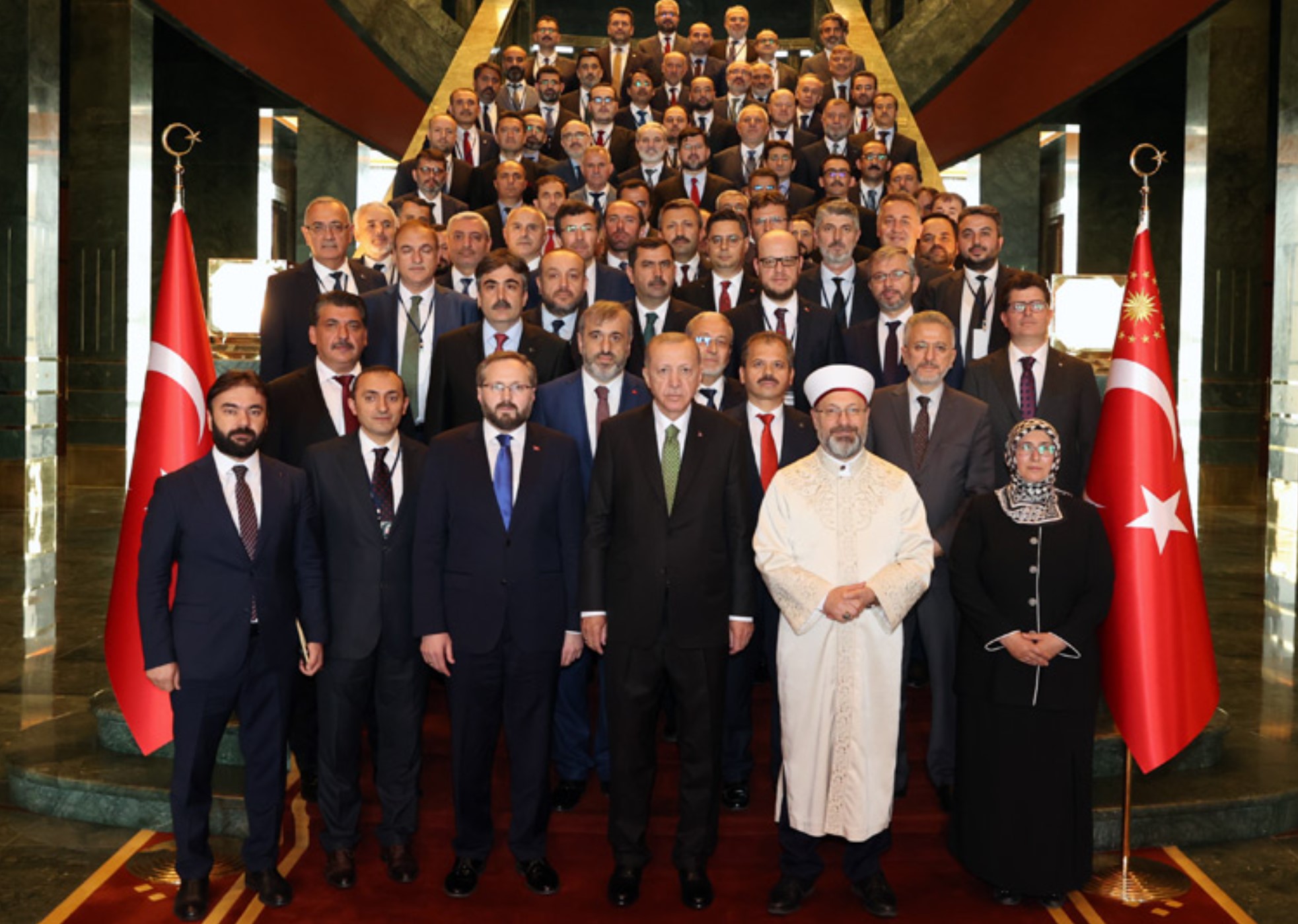
Religious affairs attachés serving in Turkish embassies and consulates in Europe were brought to the presidential palace on June 2 for a private audience with Erdoğan. No word on the content of the talks was ever reported by the Turkish press, meaning the presidential communications office did not share anything with news outlets.
In the 2018 presidential election, 1.3 million voters living abroad voted. Erdogan received 60 percent of these votes.
Erdoğan opponents often claim the Diyanet serves to reinforce the perception that the government’s actions are in harmony with Islam and that Erdoğan is a leader who serves Islam. The president of the Diyanet is more visible in the social arena, which the party base, who had complained about strict secular policies discriminating against the pious segment of society prior to the advent of the Justice and Development Party (AKP), sees as getting revenge on secularists and provides a bonding within the party. The support of the government and the implicit criticism of the opposition, especially in sermons in mosques, are frequently criticized by the opposition. Government-appointed imams often imply in mosques and on social media that supporting the opposition would be a sin and that the gains of Muslims will be lost.

